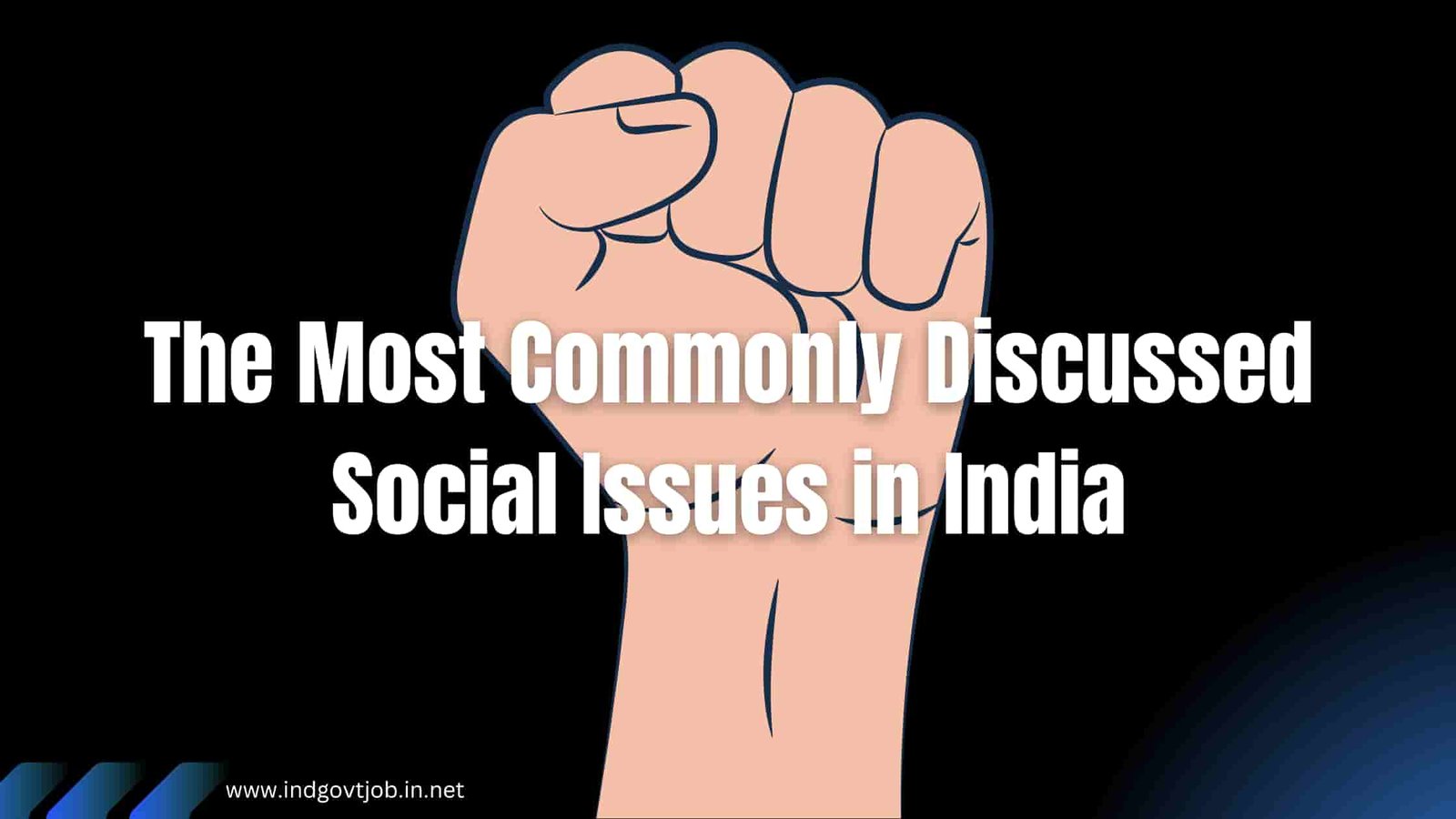The Most Commonly Discussed Social Issues in India
India faces a range of social issues, some of which are more prominent
or widely discussed than others. These issues include poverty,
corruption, caste system, gender inequality, religious intolerance,
and lack of education, among others.
By IndgovtjobPublished On February 21, 2023
Home /
Blog
/ India's Popular Social
Social issues in India are numerous and complex, reflecting
the country's diverse history, culture, and society.
India is a rapidly developing country with significant economic and
social progress in recent years, but many challenges remain. Social
issues in India can be broadly categorized into different areas,
including poverty, inequality, corruption, discrimination, violence,
and environmental degradation, among others.
Poverty and inequality are significant issues in India, with a large
number of people living in poverty and a significant gap between the
wealthy and the poor. This can lead to a range of related issues, such
as malnutrition, lack of access to education and healthcare, and a
cycle of poverty that is difficult to break.
Discrimination based on factors such as caste, gender, religion, and
sexual orientation also remains a significant issue in many parts of
India.
In addition, issues such as corruption, political polarization, and
violence against women and children continue to be major challenges.
There are many social issues in India, which we can't describe in one
page. So, we've listed most Commonly discussed social issues in this
article.
Social Issues Introduction
Social issues refer to problems that affect people's lives,
communities, and societies at large. These issues arise from social,
economic, cultural, and political factors, and can have wide-ranging
impacts on individuals, families, and entire communities.
Examples of social issues include poverty, inequality, discrimination,
racism, gender bias, environmental degradation, human rights
violations, and access to education, healthcare, and basic necessities
like food and clean water. Social issues can also manifest in
different forms such as violence, crime, drug abuse, mental health,
and social exclusion.
Addressing social issues requires collective action and participation
from individuals, government, non-governmental organizations, and
various stakeholders. It involves understanding the root causes of
these issues and implementing long-term solutions to address them. By
working together to tackle social issues, we can create a more just
and equitable society for all.
Top 13 Most Commonly discussed social issues in India

Certainly! Here are some of the most commonly discussed social issues
in India:
Please note that this is not an exhaustive list, and there are
many other social issues that affect different parts of Indian
society.
1. Poverty and Inequality

India is home to a large number of people living in poverty, and there
is a significant gap between the wealthy and the poor. This can lead
to a range of related issues, such as malnutrition, lack of access to
education and healthcare, and a cycle of poverty that is difficult to
break.
2. Corruption
Corruption is a significant issue in India, with many public officials
and politicians accused of taking bribes, misusing public funds, and
engaging in other forms of corruption that harm the public interest.
3. Caste system and caste-based discrimination

India's caste system is a complex social hierarchy that has been in
place for centuries, and it remains a significant issue today.
Discrimination based on caste is illegal, but it still exists in many
areas, and people from lower castes often face discrimination in
education, employment, and other areas of life.
4. Gender inequality and discrimination

Women in India face a range of challenges, including gender-based
violence, discrimination in education and employment, and limited
political representation. Efforts are being made to address these
issues, but progress has been slow.
5. Religious intolerance and communalism

India is a country with many different religious groups, and there
have been incidents of violence and intolerance between different
communities. This can lead to social division and a lack of trust
between people of different religions.
6. Lack of education and quality education
While there has been progress in recent years, many people in India
still lack access to quality education. This can limit opportunities
for social and economic advancement and perpetuate the cycle of
poverty.
7. Child labor and exploitation

Despite being illegal, child labor is still a significant issue in
many parts of India. Children are often forced to work in dangerous
and exploitative conditions, and this can have long-term consequences
for their health and wellbeing.
8. Environmental degradation and climate change

India is a rapidly developing country with significant environmental
challenges, including air and water pollution, deforestation, and the
impacts of climate change. These issues can have significant
consequences for public health and wellbeing.
9. Healthcare and public health issues
While India has made significant progress in improving healthcare in
recent years, there are still significant challenges, including a lack
of access to healthcare in rural areas, inadequate public health
infrastructure, and high levels of air pollution.
10. Human trafficking and exploitation

India is a source, transit, and destination country for human
trafficking. Victims of trafficking are often forced into labor or the
sex trade, and many are subject to abuse and exploitation.
11. Political polarization and division
India is a country with a diverse range of political opinions and
perspectives, and there is often intense polarization and division
between different groups. This can lead to a lack of trust in
government and public institutions.
12. Violence against women and children

Women and children in India are often subject to violence, including
domestic violence, sexual assault, and human trafficking. While there
have been efforts to address these issues, progress has been slow.
13. Discrimination against marginalized communities, including LGBTQ+
people and people with disabilities:
Marginalized communities, including LGBTQ+ people and people with
disabilities, often face discrimination in India. This can limit their
opportunities and lead to social exclusion.
Also Read:

SHARE IT















